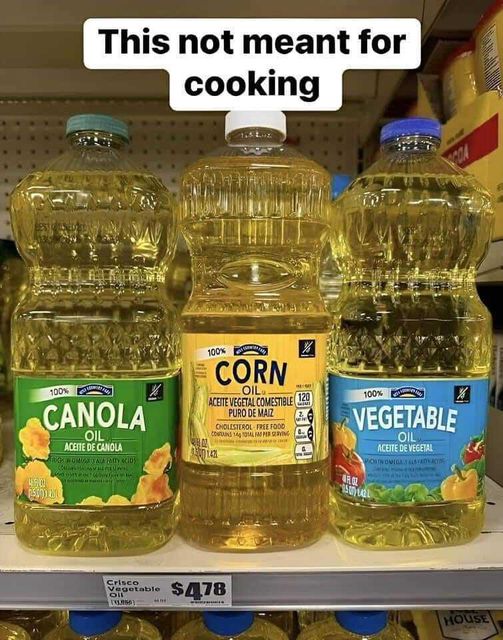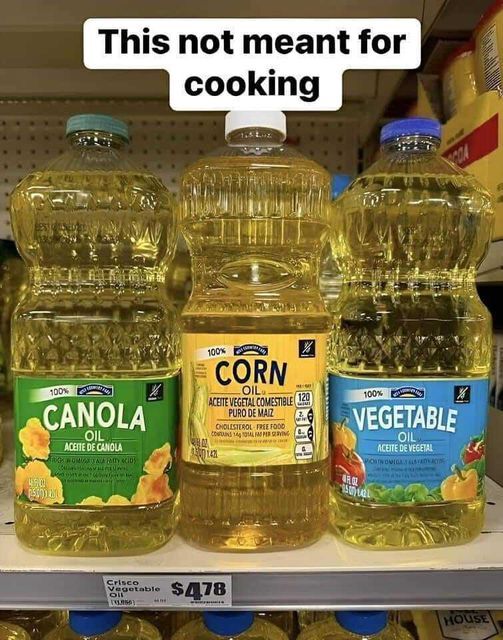When strolling through the grocery store, you might notice oils like canola, corn, and vegetable oil conveniently sitting on the shelves at budget-friendly prices. While these are marketed as handy cooking oils, there is an increasing awareness that they may not be the healthiest choices, especially when you’re cooking at high temperatures. Let’s dive into why these oils might not be the best for cooking.

High Omega-6 Fatty Acid Content
Oils made from canola, corn, and other vegetables are often rich in omega-6 fatty acids. While omega-6 is essential for our diet, the average Western diet already overflows with it. Too much omega-6 can upset the balance with omega-3s in your body, which could lead to inflammation. This imbalance has ties to health problems like heart disease, obesity, and other inflammatory conditions.
Refined and Processed
These oils undergo a lot of processing. To squeeze oil out of corn, soy, or other vegetables, manufacturers apply high heat along with chemical solvents like hexane, an industrial chemical. This refining process removes natural nutrients and antioxidants that raw oils contain, resulting in an oil that’s refined but not as nutritious.
Low Smoke Point
The smoke point of an oil is the temperature at which it begins to burn and degrade. Canola, corn, and general vegetable oils feature low to moderate smoke points, meaning they can begin to break down at moderate temperatures. When oils hit this smoke point, they can release potentially harmful compounds, including free radicals and acrolein, which might be bad for your health and can make your food taste unpleasant. Cooking with these oils at high temperatures, like frying, might lead to these unwelcome compounds.
High in Trans Fats
The refining process can lead to the formation of small amounts of trans fats in these oils. Trans fats are widely known for increasing bad cholesterol (LDL) and lowering good cholesterol (HDL), upping the risk of heart disease, stroke, and type 2 diabetes. Even in tiny quantities, trans fats can affect your health over time.
Better Alternatives for Cooking
If you’re hunting for healthier options, think about oils that have gone through less processing and hold strong at high temperatures. Here are a few you might consider swapping into your cooking routine:
Conclusion
Though canola, corn, and vegetable oils are budget-friendly and easy to find, they bring certain health risks, particularly when used frequently in your cooking. For a healthier lifestyle, try switching to oils more stable in heat and rich in nutrients. Making this straightforward change might help lower inflammation, reduce exposure to harmful substances, and support your all-around health.




